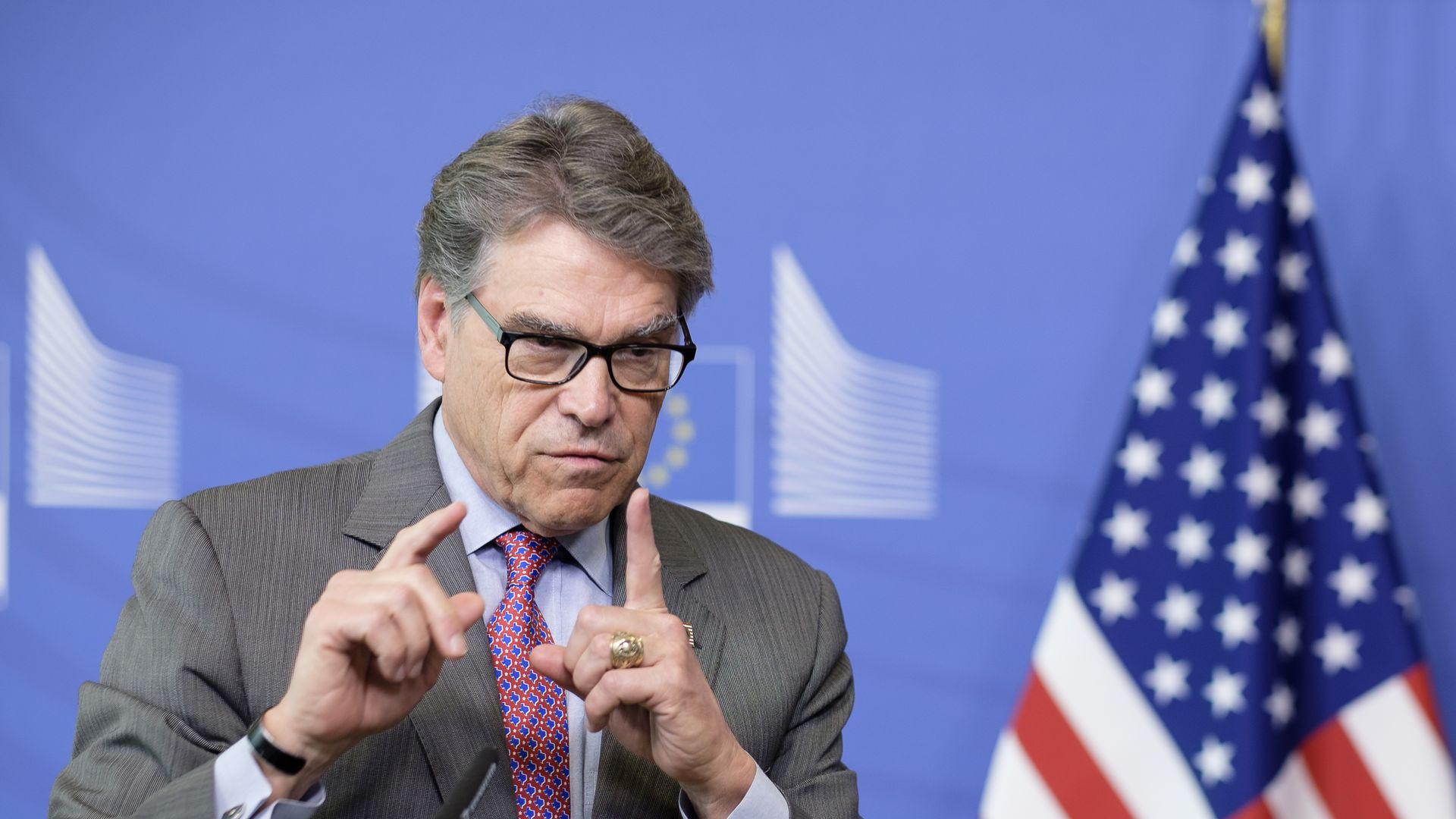
The Department of Energy uncorked a memorable phrase yesterday when it approved expanded shipments from the Freeport LNG site in Texas. Here's Under Secretary of Energy Mark W. Menezes yesterday in DOE's greatest press release ever:
Another DOE official touted "molecules of U.S. freedom to be exported to the world."
The fallout: The phrasing got a ton of coverage and produced some fun writing, like this from Slate's Jordan Weissmann:
Why it matters: The DOE's release is really about an idea that underlies President Trump's energy policy and also animated President Obama's (albeit with less aggressive phrasing) — using the U.S. oil-and-gas boom to provide geopolitical leverage.
- This takes multiple forms, like providing the oil markets more slack to absorb the loss of Iranian barrels to sanctions.
- And when it comes to that freedom gas, officials often cite the idea that expanded U.S. LNG shipments to Europe act as a check against Russia, the continents's dominant supplier.
- As the Washington Post notes, Energy Secretary Rick Perry has previously touted the idea of "exporting freedom" to describe U.S. gas.
The intrigue: The influence of U.S. gas in Europe is complicated. LNG volumes shipped there, while growing, are small compared to Russian supplies.
- However, the idea that U.S. exports create political and market leverage for allies is hardly crazy.
- Even if volumes are modest or not as cheap, alternative supply options give European nations leverage to strengthen their hand in negotiations with Russia's Gazprom.
On the record: I chatted with energy and geopolitics expert Nikos Tsafos of the Center for Strategic and International Studies, who offers a dose of skepticism.
- "Freedom gas implies some political side effects — the idea that by relying on Russian gas, a country is somehow political subservient to Russia too. That’s the entire theory of it all. So once Lithuania or Poland get non-Russian gas, their *political* freedom to maneuver, their national security, their strategic posture will be enhanced," he said via email.
- "This is mostly a hypothesis, not a proven fact, and yet it is generally treated as a real fact, which leads people to rhapsodize about the political benefits of U.S. LNG. It would be helpful if these grand statements on the geopolitical benefits of U.S. LNG were subjected to empirical tests."
Go deeper: Trump seeks to flex America’s energy muscles abroad







